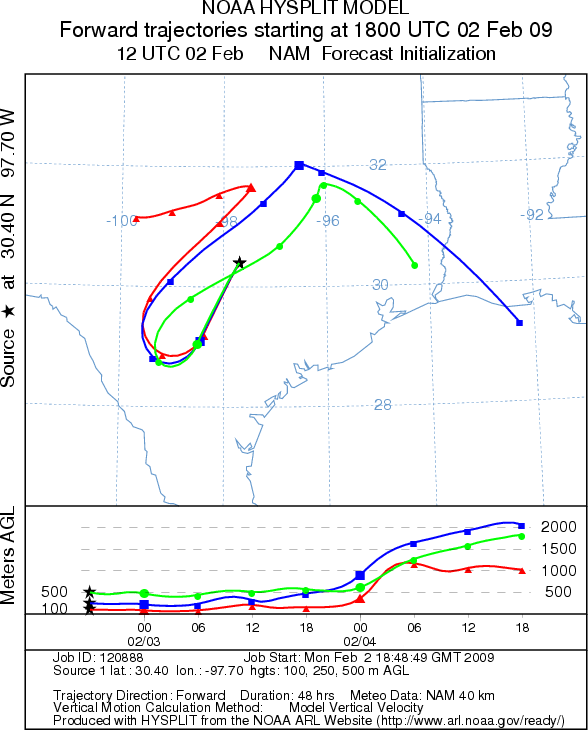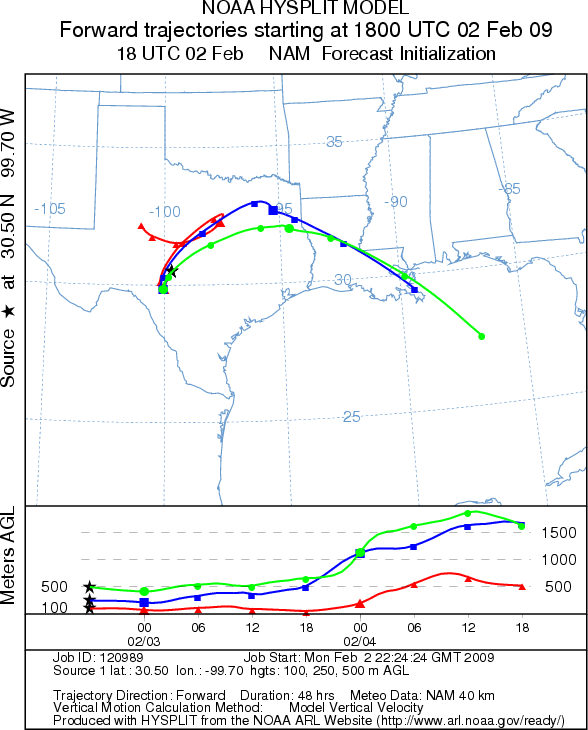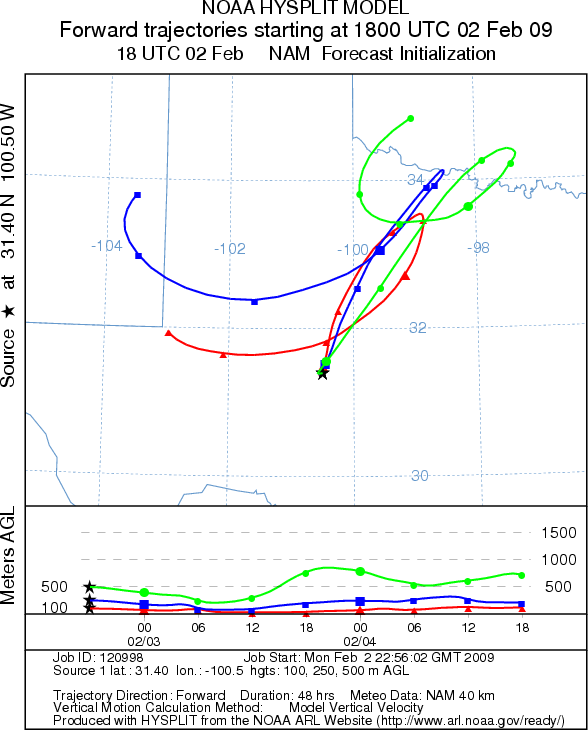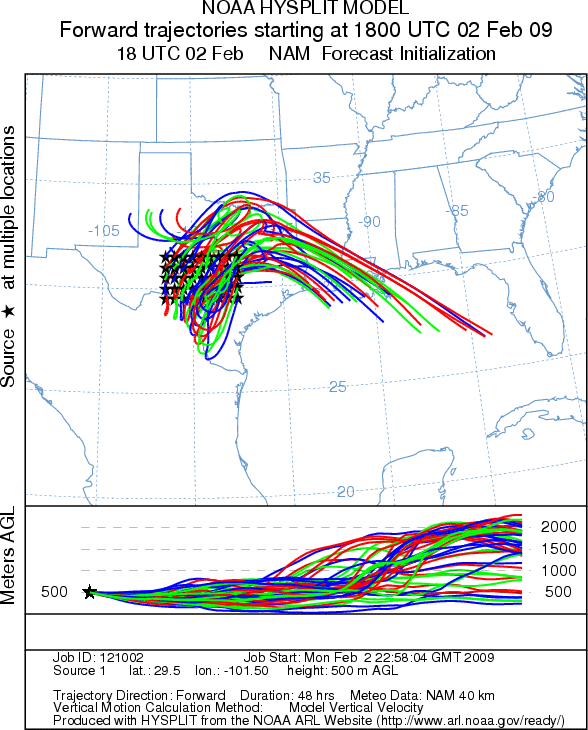The University of Tulsa
Mountain Cedar Pollen Forecast
Metropolitan Area |
Exposure Risk |
|
Dallas/Fort Worth |
Moderate |
|
Austin |
Moderate to High |
|
San Antonio |
Moderate to High |
Date Issued: 2 February 2009
Mountain Cedar Location(s): Edwards Plateau, Texas
Regional Weather: Monday, February 02 – TX/OK:
Across the region the weather will be warm today. Skies will be mostly sunny across the region today as well as
tomorrow. In Oklahoma temperatures today will be in the mid 50s with light winds shifting from the north this
morning to the south by evening. Tonight temperatures will be in the mid 20s with light and variable winds returning.
Tomorrow will continue to be sunny with temperatures ranging from the upper 40s to the mid 50s. In Texas, sunny
skies will prevail today and tomorrow. Temperatures will be in the mid to upper 50s on the Plateau and into the
lower 60s in the surrounding communities. Winds will be from the north early pivoting to the northeast becoming
strongly from the northeast after noon. Tonight clear skies will occur across the region with colder temperatures
ranging from just at freezing into the upper 20s at the higher elevations of the Plateau. High temperatures tomorrow
will be about 10 to 15 degrees warmer than today’s readings. The Plateau is expected to be in the upper 60s and
the surrounding communities into the 70s.
Trajectory weather: The air mass trajectories from the Edwards Plateau circle around central Texas today
under variable winds. The trajectories show mixed characteristics for entrainment and travel. Sunny skies will
occur today at the source sites with temperatures ranging from the upper 50s to mid 60s. Skies will be clear tonight
with temperatures in the upper 20s and low 30s. Tomorrow will be sunny again with temperatures warming into the
upper 60s and low 70s.
OUTLOOK: *** Moderate to High Threat *** favorable conditions
for pollen release with mixed conditions for entrainment and transport. Warm conditions with light and variable
wind will be favorable for pollen release. We are approaching the traditional end of the Juniperus ashei pollinating
period thus the amount of pollen may be marginal. Late January and early February is usually the time that pollination
in Juniperus ashei trees begins to wane, thus lower concentrations in the atmosphere should be expected, even under
excellent conditions for dispersal. This period also signals the beginning of pollination of Juniperus virginiana
a species that is somewhat less allergenic. In many cases the concentration of all cedar pollen in the atmosphere
will remain significant but result in fewer symptoms as it represents a mix of the two species. The weather during
the 2008/2009 pollination season was unexpectedly mild and, therefore, the number of days with good pollen release
potential has been high. This is the last forecast for the 2008/2009 Juniperus
ashei pollination season! Please return to our site in December 2009.
Trajectory Start (s) (shown by *
on map): Austin, TX; Junction, TX; San Angelo, TX.
AUSTIN

JUNCTION

SAN ANGELO

EDWARDS PLATEAU COMPOSITE

Prepared by: Estelle
Levetin (Faculty of Biological
Science, The University
of Tulsa, 800 S. Tucker Dr., Tulsa, OK 74104) and ) and Peter K Van de Water (Department
of Earth and Environmental Science, California State University Fresno, 2576 East San Ramon Avenue, M/S ST24, Fresno
CA 93740-8039). This forecast gives the anticipated future track of released Mountain Cedar pollen, weather conditions
over the region and along the forecast pathway, and an estimated time of arrival for various metropolitan areas.
Questions: Aerobiology Lab e-mail: pollen@utulsa.edu
Return to Forecasting Home Page